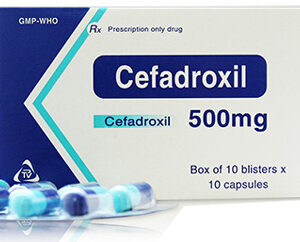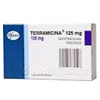Ceftin, also known by its generic name cefuroxime, is an antibiotic medication belonging to the cephalosporin class. It is primarily used to treat a variety of bacterial infections in different parts of the body, such as respiratory tract infections, skin and soft tissue infections, urinary tract infections, and Lyme disease.
This medication works by inhibiting the growth of bacteria and is available in various forms, including tablets, oral suspension, and intravenous injection. Ceftin is typically taken orally with or without food, and the dosage and duration of treatment depend on the specific infection being treated.
Avoiding Risks with Ceftin
Before taking Ceftin, it is important to discuss with your healthcare provider any pre-existing medical conditions or allergies you have, as well as any medications you are currently taking. Ceftin should not be used if you have a known allergy to cephalosporins or penicillins.
It is essential to inform your doctor if you have a history of gastrointestinal disease, kidney or liver problems, or any bleeding disorders, as Ceftin may interact with these conditions. Additionally, caution should be exercised when prescribing Ceftin to pregnant or breastfeeding women, as its safety in these situations has not yet been fully established.
Ceftin Reactions
As with any medication, Ceftin may cause certain side effects. Common side effects include diarrhea, nausea, vomiting, abdominal pain, headache, and skin rash. These side effects are typically mild and resolve on their own without any specific treatment.
In rare cases, more severe reactions may occur, such as allergic reactions, including anaphylaxis, which requires immediate medical attention. Signs of an allergic reaction may include difficulty breathing, swelling of the face or throat, hives, and itching.
Other serious side effects that may occur with Ceftin include severe diarrhea, persistent vomiting, yellowing of the eyes or skin, dark urine, easy bruising or bleeding, and signs of liver or kidney problems. If any of these symptoms occur, it is essential to seek medical attention immediately.
How to Take It
Ceftin should be taken exactly as prescribed by your doctor. It is usually recommended to take it with food to enhance its absorption and reduce the risk of stomach upset. If you miss a dose, take it as soon as you remember. However, if it is almost time for your next dose, skip the missed dose and resume your regular dosing schedule. Do not double the dose to make up for the missed one.
In case of overdose, seek immediate medical attention or contact a poison control center. Symptoms of an overdose with Ceftin may include severe vomiting, seizures, and decreased urine output.
Ceftin and Concomitant Drugs
Before starting Ceftin, inform your doctor about all other medications you are taking, including prescription drugs, over-the-counter medications, herbal supplements, and vitamins. Certain drugs may interact with Ceftin and potentially alter its effectiveness or increase the risk of side effects.
Probenecid, a medication used to treat gout, may increase the blood levels of Ceftin, while other antibiotics, such as aminoglycosides or sulfonamides, may enhance the potential for kidney damage when taken together with Ceftin.
Additionally, Ceftin may decrease the effectiveness of oral contraceptives, so alternative methods of contraception should be considered while taking this medication.
Frequently Asked Questions
-
What should I do if I miss a dose of Ceftin?
If you miss a dose, take it as soon as you remember. However, if it is almost time for your next dose, skip the missed dose and resume your regular dosing schedule. Do not double the dose.
-
Can I drink alcohol while taking Ceftin?
It is generally recommended to avoid alcohol while taking Ceftin, as it may increase the risk of certain side effects and decrease the effectiveness of the medication.
-
How long does it take for Ceftin to start working?
The exact time it takes for Ceftin to start working varies depending on the specific infection being treated. However, improvement in symptoms is usually observed within a few days of starting treatment.
-
Can Ceftin be used to treat viral infections?
No, Ceftin is only effective against bacterial infections and should not be used to treat viral infections, such as the common cold or flu.
-
Can Ceftin be taken during pregnancy?
Ceftin should be used during pregnancy only if the potential benefits outweigh the potential risks. It is essential to discuss the use of Ceftin with a healthcare provider if you are pregnant or planning to become pregnant.






Reviews
There are no reviews yet.